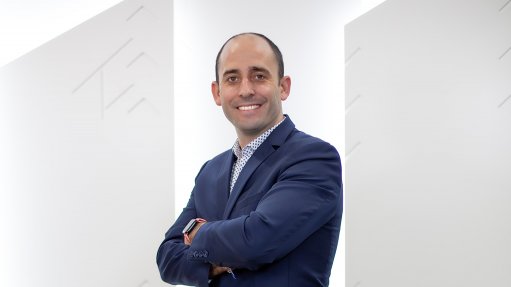Sanral overhauls procurement strategy in bid to facilitate transformation
The South African National Roads Agency Limited (Sanral) has launched a draft transformation policy that aims to have a “snowball effect” on the broader South African construction industry, says CEO Skhumbuzo Macozoma.
“This policy is going to trigger a review of our supply chain management policy, which, in turn, is going to change our procurement strategy. It will also change other strategies, such as human resources.”
“We have identified ten areas where we want to develop subsector strategies.”
These ten areas are capital projects; road maintenance; operations; property; information and communication technology; finance and audit; legal; marketing, advertising and communication services; human capital; and noncore services.
Included here, for example, is the proposal that Sanral only does business have companies that are at least 51% black-owned and have a minimum Level 2 black empowerment rating when rolling out capital projects.
Also, a maximum of 15 tenders a year will be awarded to a single company, and companies will be required to make use of Sanral-approved contractors.
Concessions to manage and operate toll roads will only be awarded to companies with 51% black ownership. To reduce monopolies, Sanral will limit the number of contracts awarded to established and dominant industry players.
There will also be a focus on the “equitable allocation” of projects across Construction Industry Development Board grades, with grades 1 to 4 (emerging and/or smaller companies) to be accommodated.
Emphasis will also be placed on creating space for black business in ‘rigid’ materials and equipment supply chains.
Sanral is also to play a more direct role in the development of emerging contractors.
In addition, communities where road contracts are implemented will have to benefit from such contracts.
“We are but one element of a very big construction industry,” says Macozoma.
“We put R20-billion into this industry on an annual basis. This is a very significant amount, but our budget in comparison to Eskom’s is still very small. Our budget compared with Transnet’s is very small. If together, under the auspices of the Presidential Infrastructure Coordinating Commission, we have a process where government galvanises its efforts, we will achieve the objective of transforming this industry together.
“We are now currently pursuing our own transformation strategies, and, of course, the sum of the pieces is not adding up to what we want. We want to locate our strategy within the strategies of the rest of government, so we can begin to swing this industry.”
Horizon 2030
Sanral has also unveiled its Horizon 2030 strategy, which will guide the group’s policies for the next 13 years.
Sanral chairperson Daphne Mashile-Nkosi says Sanral has “learned some hard lessons” in the past five years, with the 2030 strategy a plan for the group “to return to grace”.
“The process will take time, patience and fortitude.”
Her comments refer partly to the combined failure of government and Sanral to convince the Gauteng public to pay electronic toll fees for a revamped road network in the country’s economic heartland.
Currently, only 30% of electronic toll revenues are collected.
The 2030 strategy considers broadening Sanral’s footprint beyond South Africa, with current legislation limiting it to work within the boarders of the country.
Horizon 2030 also proposes a review of road transfers from the nine provinces to Sanral, limiting the planned 15 000 km to be added (to reach 35 000 km, up from the current 22 000 km) to 3 000 km.
A reduction in the kilometres transferred would result in a more sustainable national road network of 25 000 km, with an increased budget per kilometre, notes Macozoma.
As for funding, Horizon 2030 notes that “uncertainties relating to adequate funding allocations from government and concerns relating to the use of private finance to develop roads place an increasing risk on the sustainability of the high quality of the condition of the entire national road network”.
Private financing refers to tolling and toll concessions.
Macozoma sketches a picture of two scenarios in terms of Sanral’s future expenditure: either private funding plays a role, with more roads to be built faster and the current network remaining in good condition, or Sanral’s budget remains reliant on the State, with roads to be built as funds become available, resulting in new projects either being delayed or cancelled. Road maintenance is also likely to suffer.
“We can take Scenario 1, which is growing our network to 35 000 km, with a current 5% increase in the public budget allocation and [much] uncertainty about the future of toll,” he noted.
“This is not sustainable – it’s entering very dangerous waters that will lead to the serious deterioration of the quality of our road network.
“In Scenario 2, where we moderate the transfer of roads from other authorities and end at 25 000 km . . . we [will]have sufficient infrastructure allocations to improve infrastructure. That is the scenario we are negotiating going forward.”
Public Comment
Sanral’s Horizon 2030 and its transformation policy will be open for public discussion at industry roundtables between October and December.
Submission of comments closes in December.
The revision and final approval of the policies are scheduled for March next year, with implementation set for April 1, 2018.
Comments
Press Office
Announcements
What's On
Subscribe to improve your user experience...
Option 1 (equivalent of R125 a month):
Receive a weekly copy of Creamer Media's Engineering News & Mining Weekly magazine
(print copy for those in South Africa and e-magazine for those outside of South Africa)
Receive daily email newsletters
Access to full search results
Access archive of magazine back copies
Access to Projects in Progress
Access to ONE Research Report of your choice in PDF format
Option 2 (equivalent of R375 a month):
All benefits from Option 1
PLUS
Access to Creamer Media's Research Channel Africa for ALL Research Reports, in PDF format, on various industrial and mining sectors
including Electricity; Water; Energy Transition; Hydrogen; Roads, Rail and Ports; Coal; Gold; Platinum; Battery Metals; etc.
Already a subscriber?
Forgotten your password?
Receive weekly copy of Creamer Media's Engineering News & Mining Weekly magazine (print copy for those in South Africa and e-magazine for those outside of South Africa)
➕
Recieve daily email newsletters
➕
Access to full search results
➕
Access archive of magazine back copies
➕
Access to Projects in Progress
➕
Access to ONE Research Report of your choice in PDF format
RESEARCH CHANNEL AFRICA
R4500 (equivalent of R375 a month)
SUBSCRIBEAll benefits from Option 1
➕
Access to Creamer Media's Research Channel Africa for ALL Research Reports on various industrial and mining sectors, in PDF format, including on:
Electricity
➕
Water
➕
Energy Transition
➕
Hydrogen
➕
Roads, Rail and Ports
➕
Coal
➕
Gold
➕
Platinum
➕
Battery Metals
➕
etc.
Receive all benefits from Option 1 or Option 2 delivered to numerous people at your company
➕
Multiple User names and Passwords for simultaneous log-ins
➕
Intranet integration access to all in your organisation


















